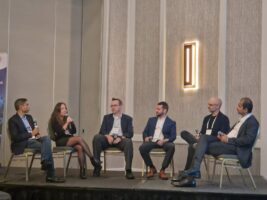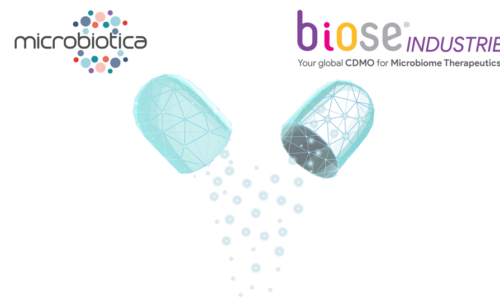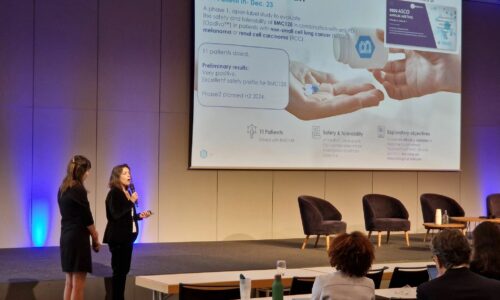On October 17 – 18 the Biose team travelled to San Diego for Global Engage’s 12th Microbiome & Probiotics R&D and Business Collaboration Forum. Covering everything from the gut-brain axis to microbiome market trends, the team enjoyed two days of meetings, interesting talks and networking.
This edition signified an expansion of the event’s coverage of women’s and infant health areas. A highlight of which was undoubtedly UCSF’s Craig Cohen who gave an insightful keynote on the development of live biotherapeutic products for bacterial vaginosis and HIV susceptibility.
Other subject areas covered at this year’s forum included “gut microbiota for health & disease”, “gut-brain axis”, “regulation and manufacture”, “probiotics, personalised nutrition & cardiometabolic diseases”.
On the morning of day one, Biose’s, CEO, Adrien Nivoliez was honoured to present on the CMC challenges for LBP and next-generation probiotic manufacturing. He was also pleased to contribute Biose’s expertise on a LBP manufacturing panel, alongside Bharat Dixit of Adiso Therapeutics and Ryan Garrett of Vedanta Biosciences.
We spoke to the event team to get their personal highlights from the forum:
- “Longitudinal profiling of the microbiome at four body sites reveals core stability and individualized dynamics during health and disease”, Xin Zhou, Research Scientist, Snyder Lab, Stanford
Zhou described his work tracking the human microbiome over a six-year period in 86 individuals across four body sites. His results revealed stable, individualised, bacterial signatures that varied in stability depending on site. Additionally, his work found a relationship between host insulin-resistance and microbiome compositions, with insulin resistance resulting in disrupted stool and skin microbiome stability.
- “Trials To Testimonials: A Probiotic for Autism”, Noelle Patno, Chief Scientific Officer, Bened Life
The applicability of psychobiotics to alleviate autism-associated symptoms was at the centre of Patno’s talk. Patno described several trials conducted with Bened Life’s lead probiotic product, PS128, that found it reduced ASD-symptomology in children through increased attention, improvements in social communication skills, and a reduction in anxiety.
- “My Baby Biome Study: A DataDriven Approach to Infant Probiotic Development”, Pedro Torres, Director, Bioinformatics and Data Science, Persephone Biosciences
Torres outlined Persphone’s development of new infant probiotics, powered by its “my baby biome” study to identify biomarkers for infant gut microbiome health. From this study, Persephone identified three distinct infant enterotypes: one Bifidobacterium dominated, one Bacteroides dominated, and one Proteobacteria/Firmicute dominated . The research also found microbiome composition influences the microbial-beneficial impact of breast milk. Torres stated Persephone will launch an infant synbiotic in early 2025, developed with the information gathered through this study.
- The Potential of Live Biotherapeutic Products to Optimize the Vaginal Microbiome to Improve Reproductive Health”, Craig R. Cohen, Professor, Department of Obstetrics, Gynaecology & Reproductive Sciences, University of California San Francisco
Cohen addressed the limitations of current bacterial vaginosis (BV) treatments and explored novel treatments. He described the high recurrence rates of BV and the potential for live biotherapeutic products to treat it. The development and clinical trials of L. crispatus CTV-05 were discussed, showing promising results in reducing BV recurrence and maintaining vaginal colonization. A randomised, placebo-controlled phase 3 clinical trial is in the pipeline.



